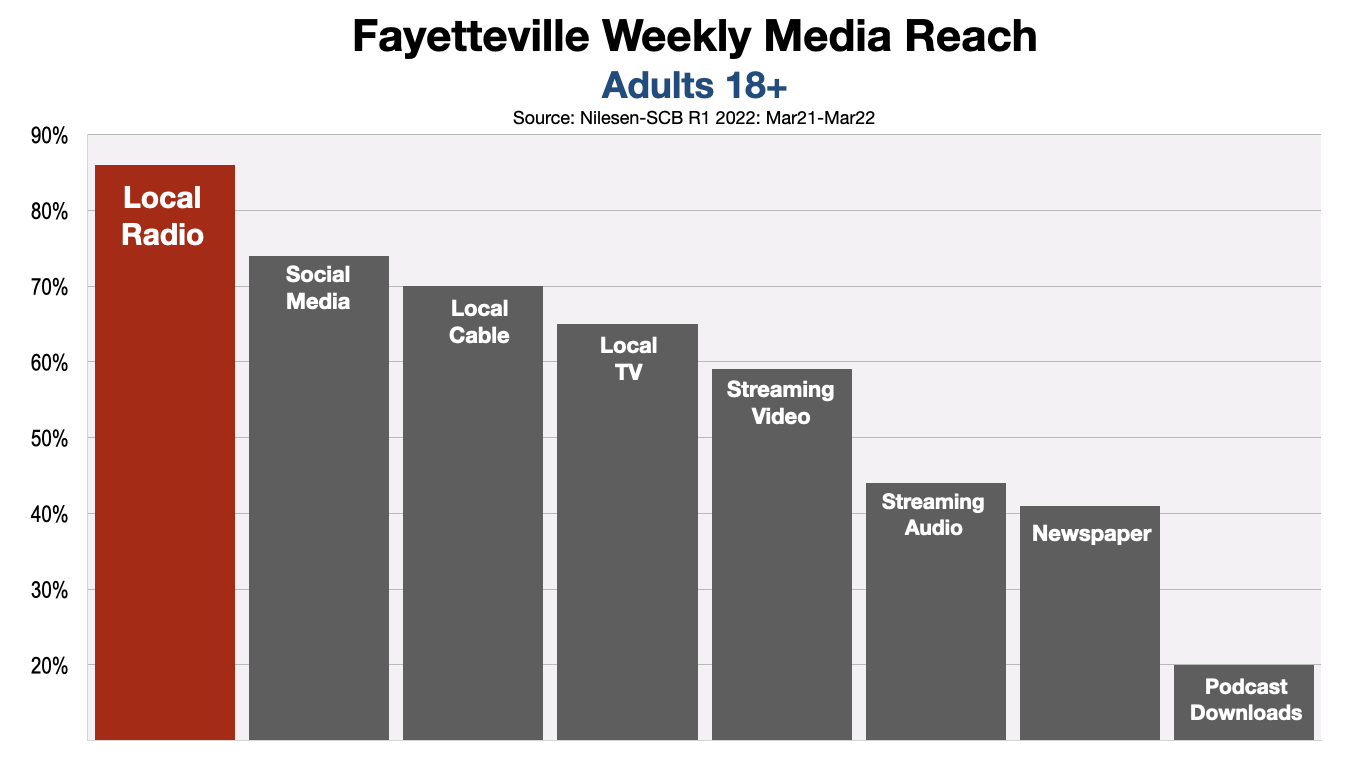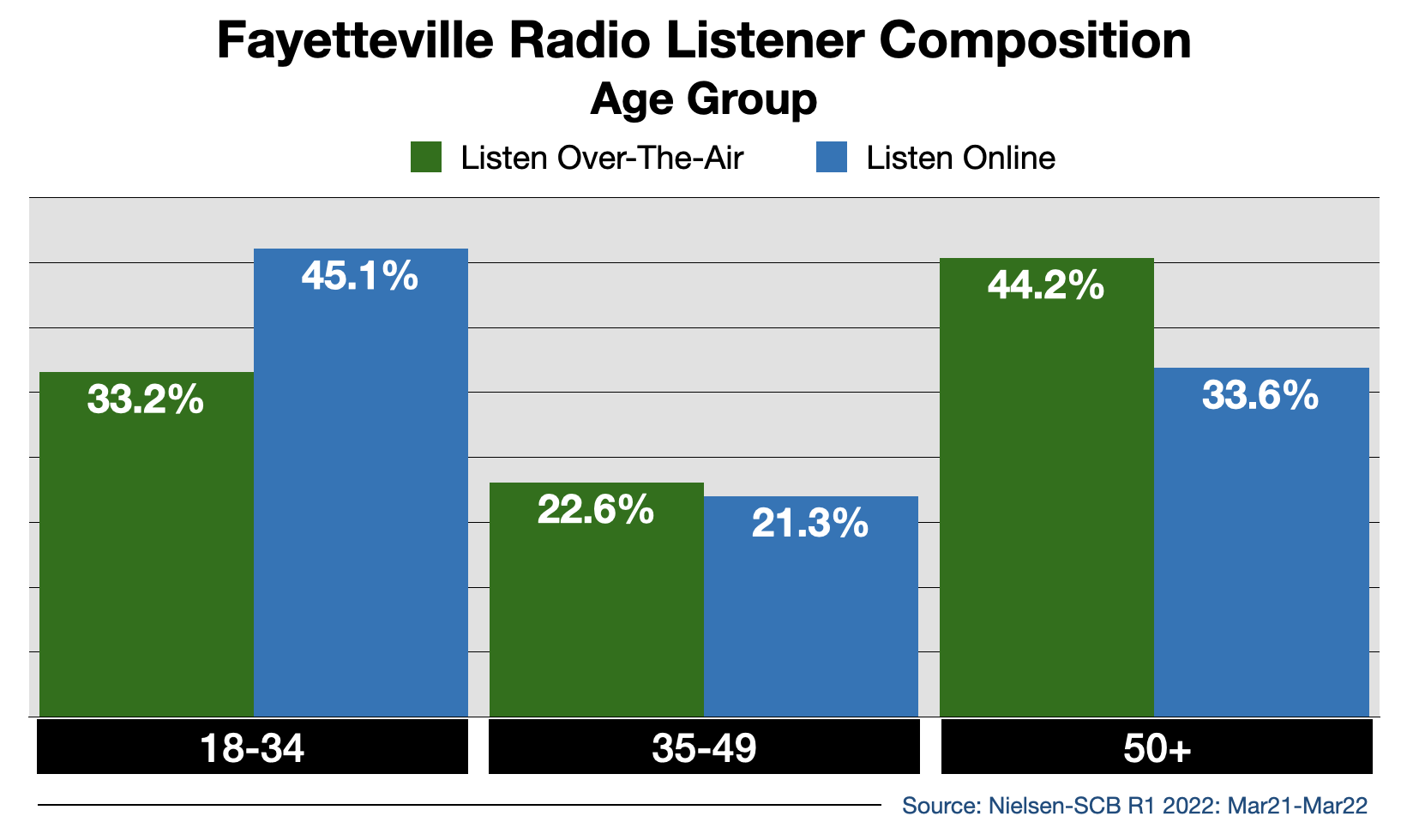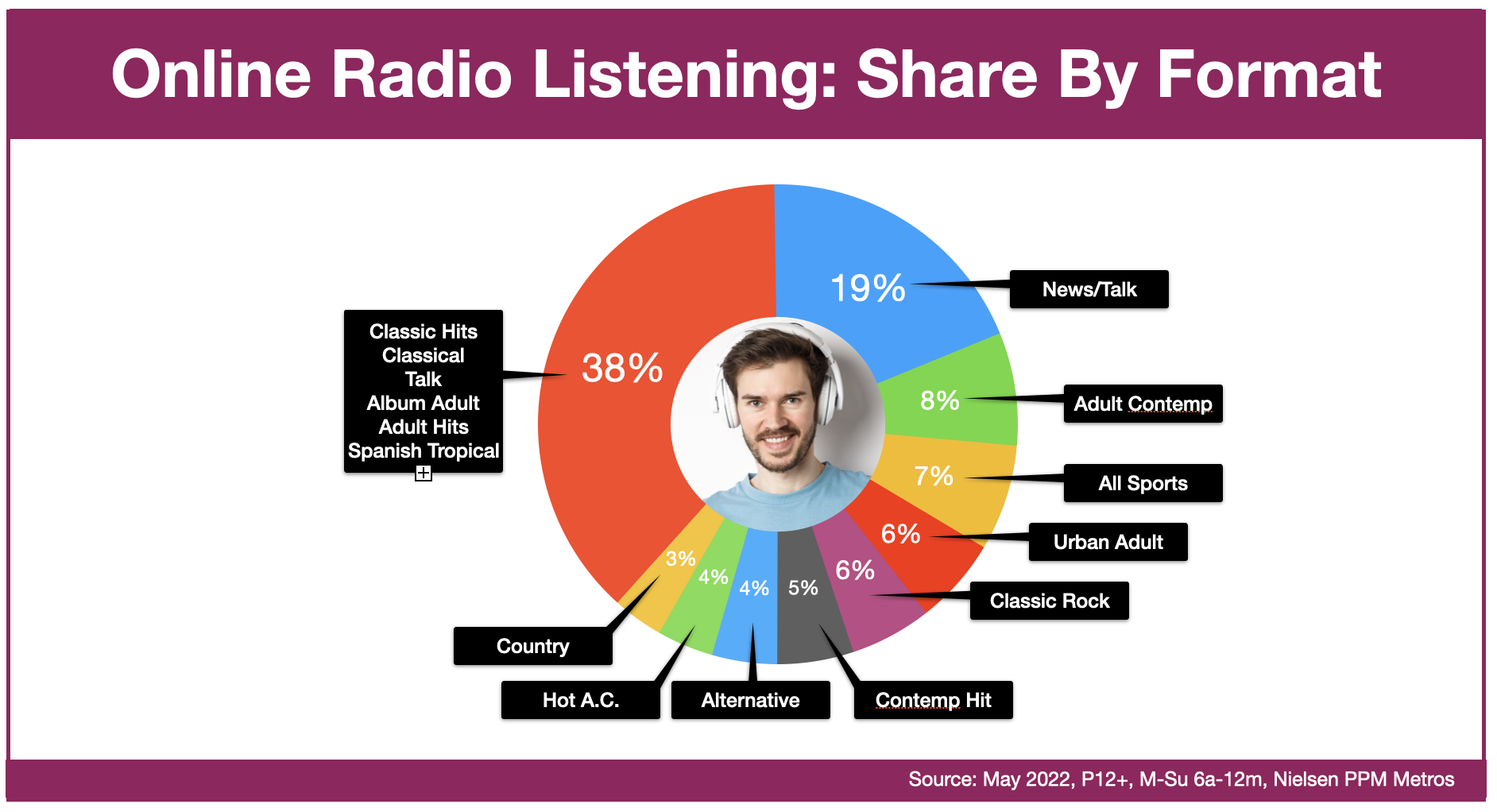Despite an abundance of media options, Fayetteville, North Carolina radio reaches the most consumers every week.
According to Nielsen, every week 301,668 adults tune in to their favorite Fayetteville stations. This is more than watch local TV stations, cable, or streaming video. It is more than browse social media. It is more than listen to streaming audio services or podcasts. It is more than read local newspapers.
Not all listening to Fayetteville radio happens on car radios, table-top radios, or boom boxes. Instead, local consumers also use their smartphones, computers, and tablets as a way to connect to their favorite local stations.
Neilsen finds that 22.9% of all consumers who listen to a Fayetteville radio station over the air will, at some point during the month, also connect to a local station via the internet. As a matter of fact, during a typical hour, Nielsen data suggests that 11.3% of a station's total audience is listening on a device other than a traditional receiver.
 Local small business owners who advertise on Fayetteville radio to market the goods and services will often ask how the characteristics of streaming audiences compare to over-the-air audiences. The charts below answer those questions. The demographic categories used are those that are most requested by local businesses. Online listeners tend to be slightly more likely to have higher household incomes, have full-time jobs, and be under 35 years old.
Local small business owners who advertise on Fayetteville radio to market the goods and services will often ask how the characteristics of streaming audiences compare to over-the-air audiences. The charts below answer those questions. The demographic categories used are those that are most requested by local businesses. Online listeners tend to be slightly more likely to have higher household incomes, have full-time jobs, and be under 35 years old.
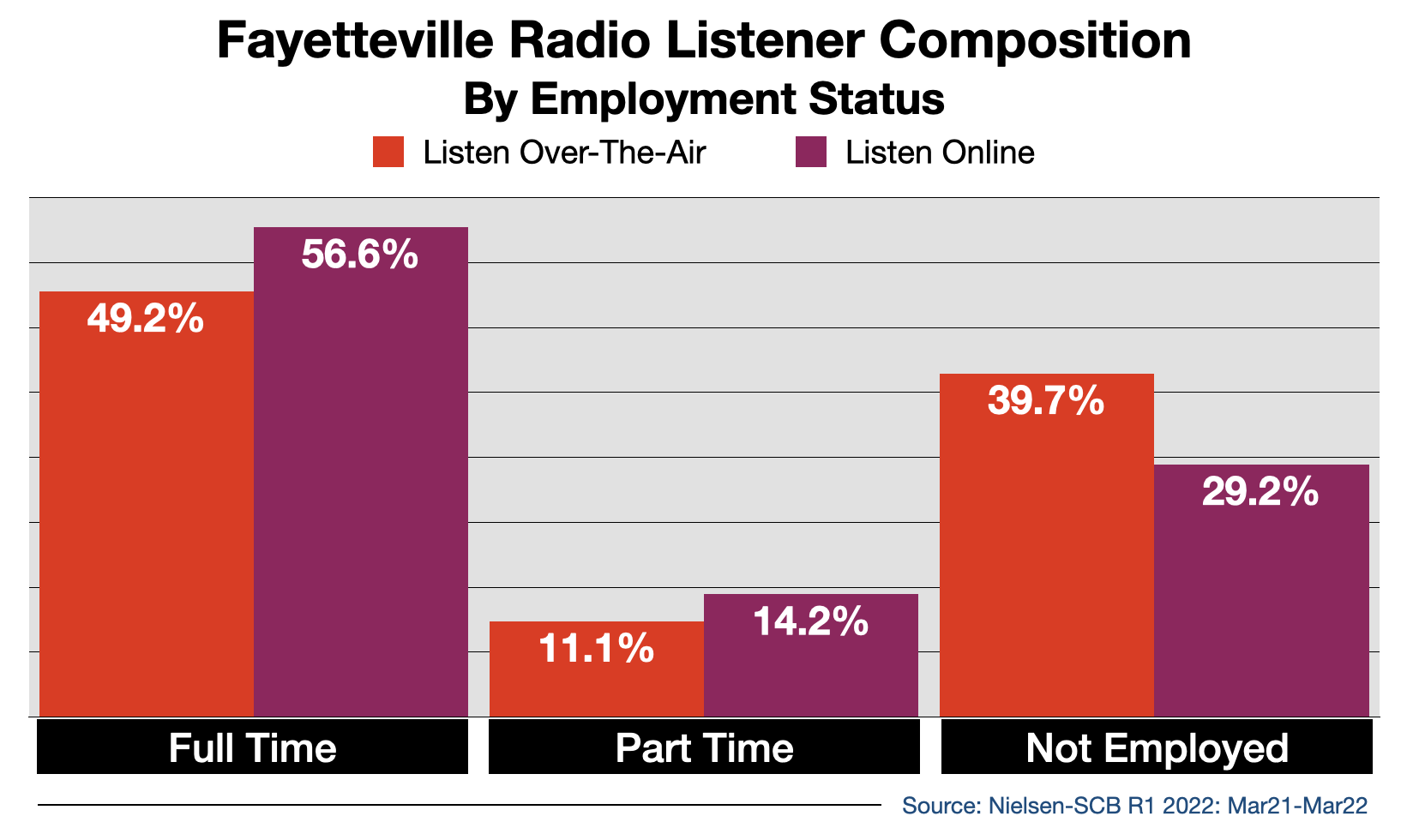
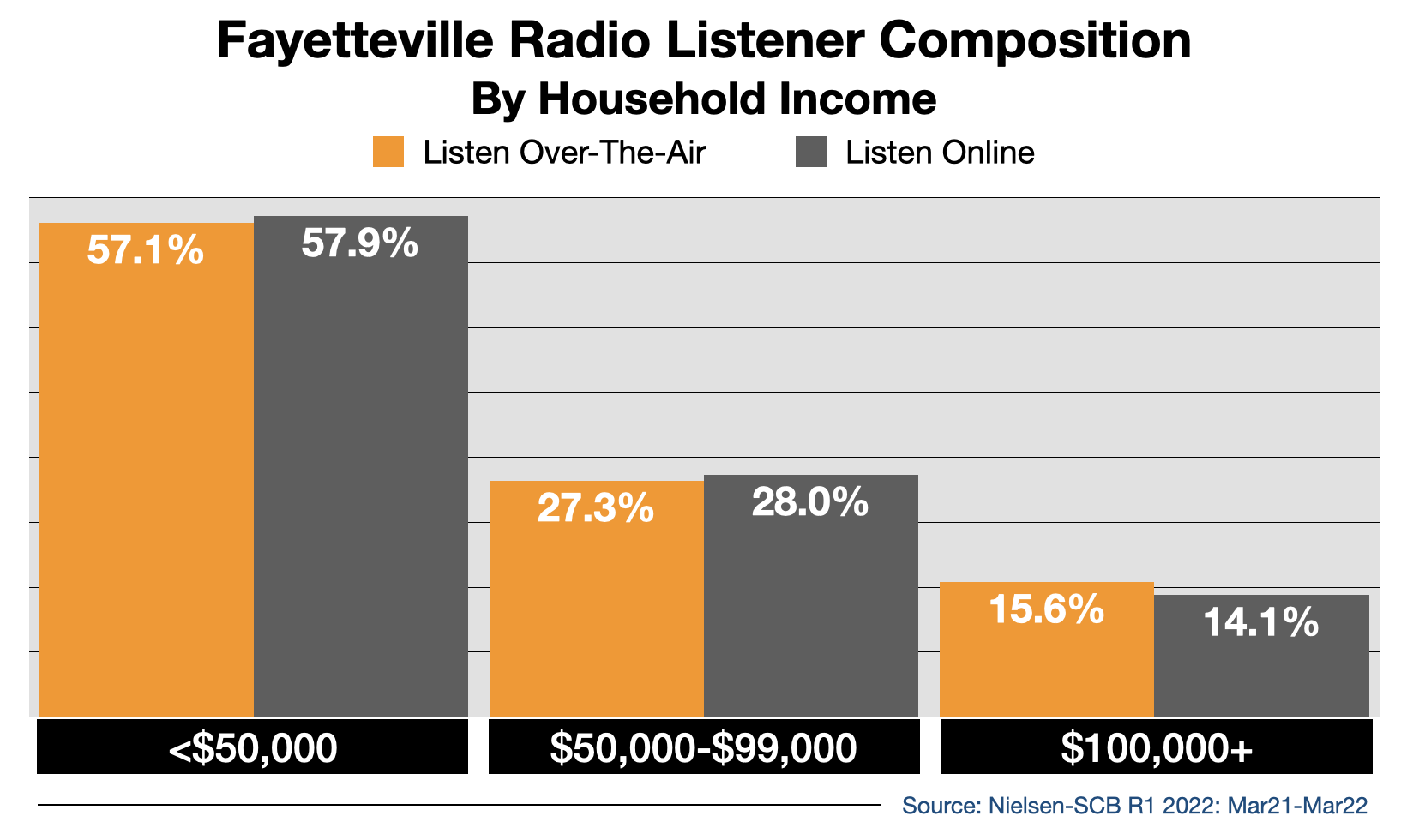 Although consumers stream all types of local stations, Nielsen has found that News/Talk, Adult Contemporary, Sports, Adult Urban Contemporary, and Classic Rock formats have the highest share of all online radio listening.
Although consumers stream all types of local stations, Nielsen has found that News/Talk, Adult Contemporary, Sports, Adult Urban Contemporary, and Classic Rock formats have the highest share of all online radio listening.
More Advertising Advice For Fayetteville Small Business Owners
- Smart Speaker Usage in Fayetteville: A Conversation With Alexa
- Advertising In Fayetteville: Where Have The TV Viewers Gone?
- Advertising On Fayetteville Radio Still #1 Way to Reach Consumers
- Father's Day 2022: Fayetteville Consumers Will Spend $27.5 Million
- Television Advertising In Fayetteville: What Are Consumers Watching?


